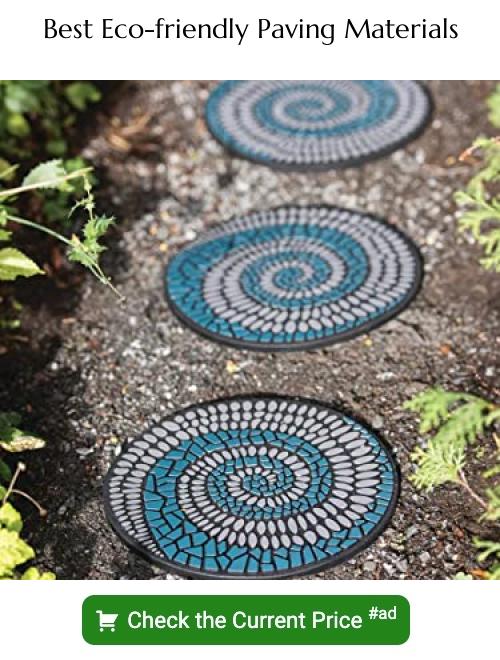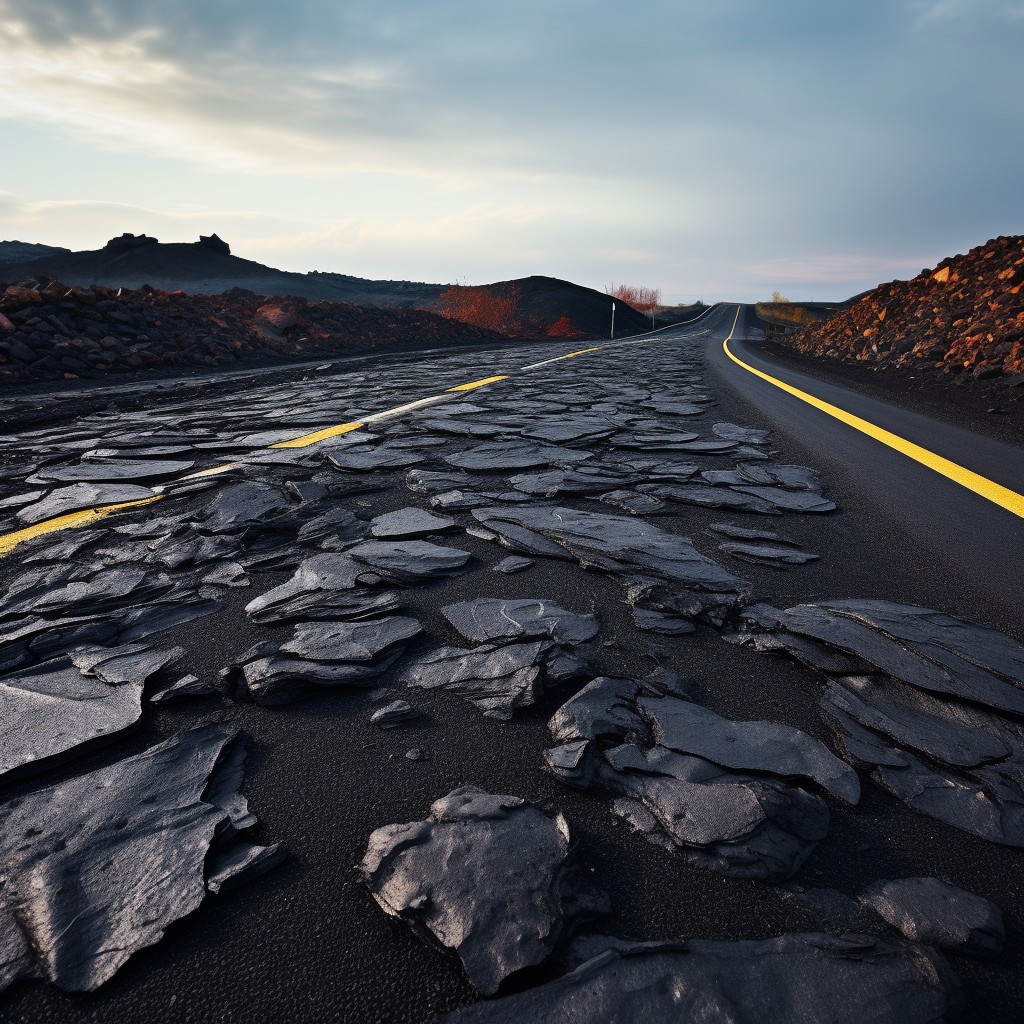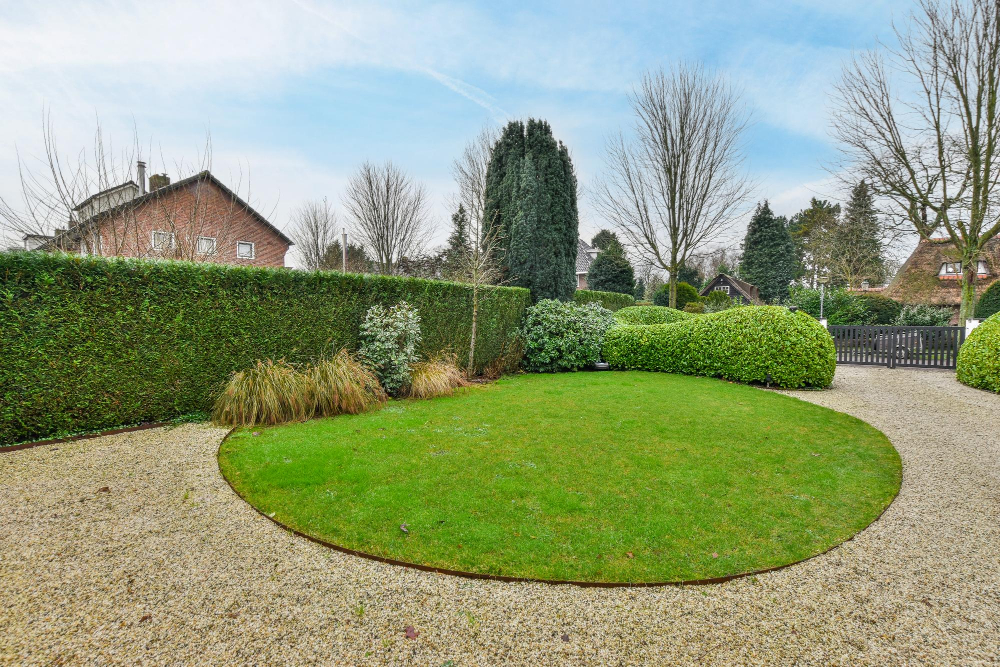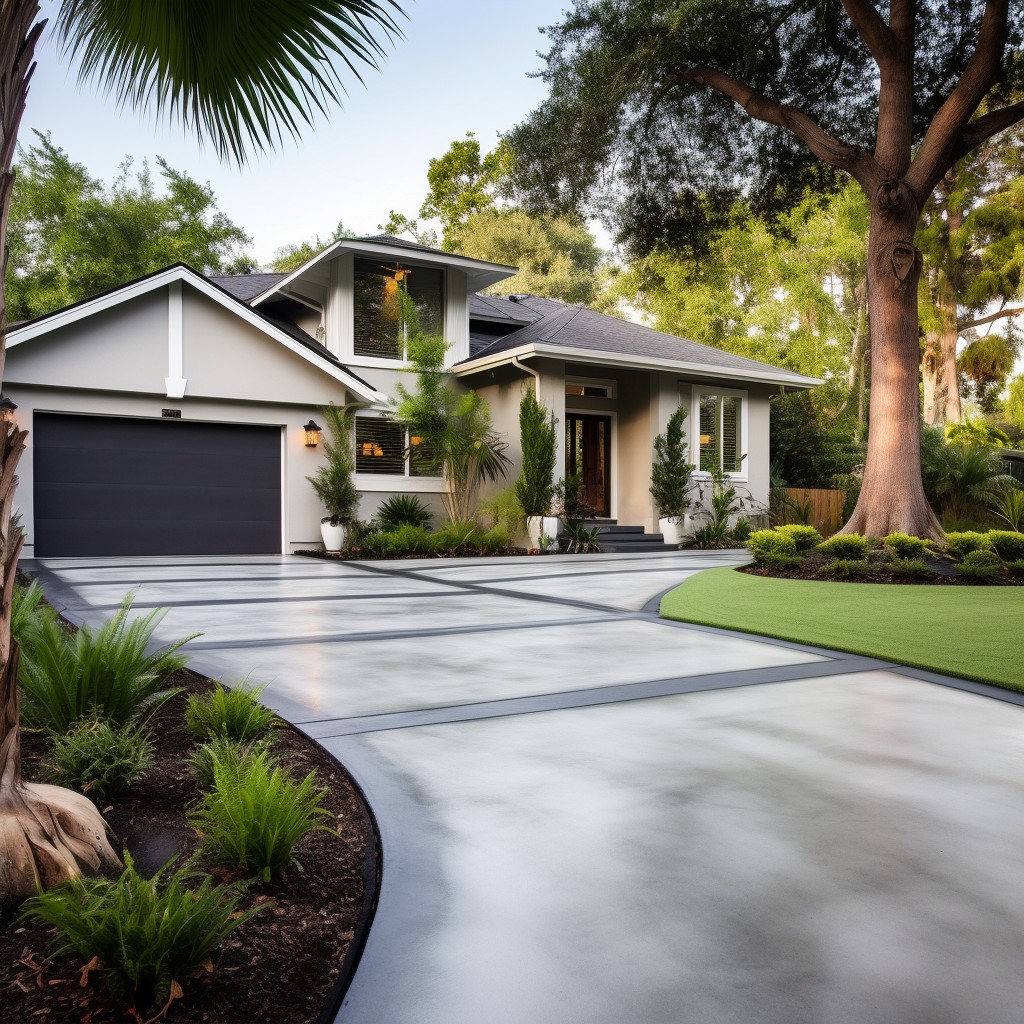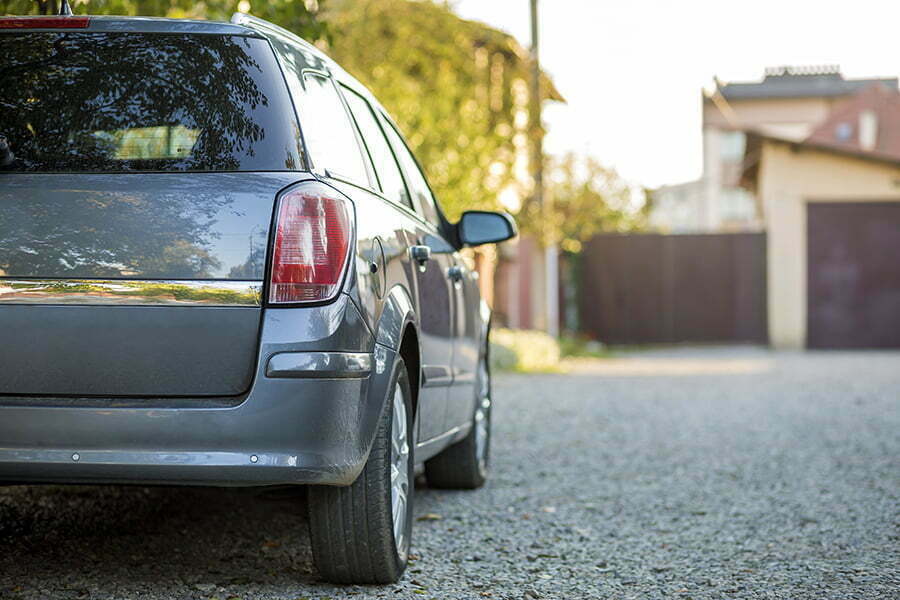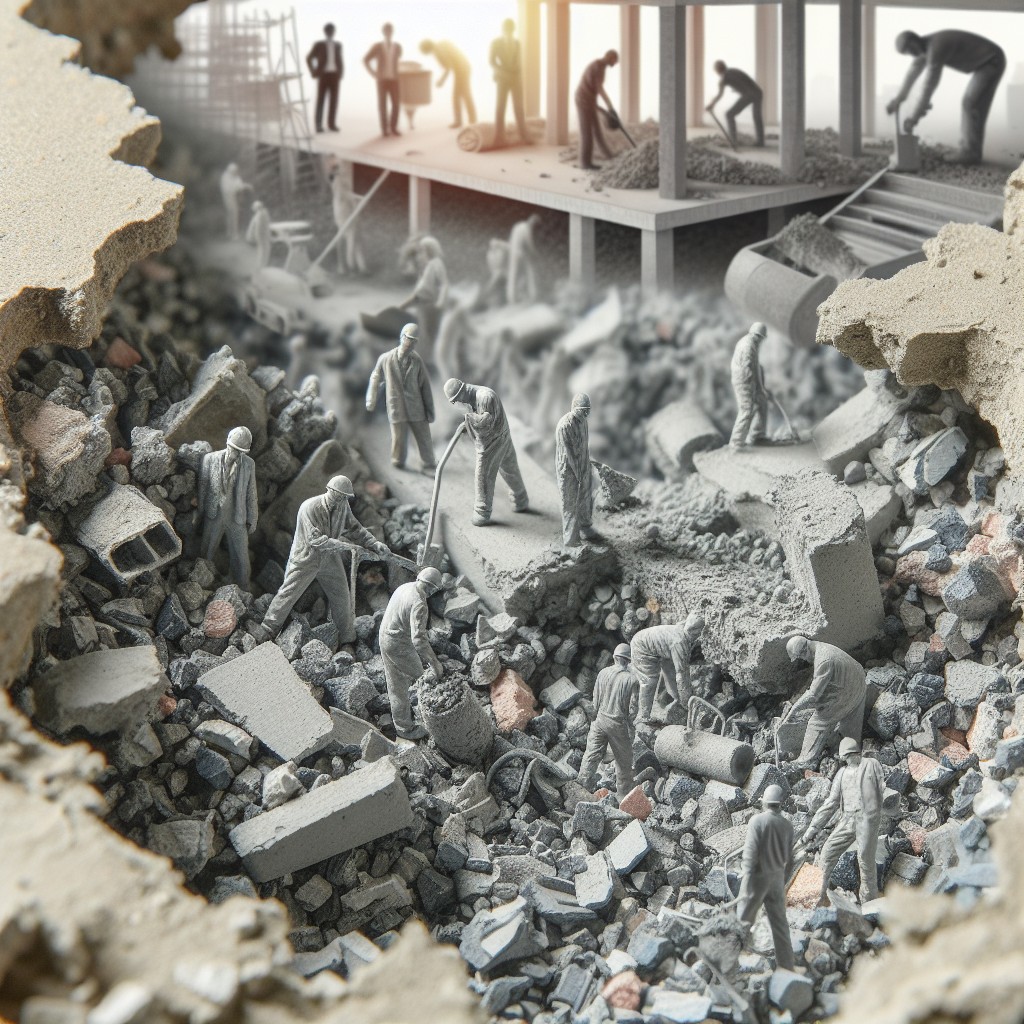Last updated on
Explore the fascinating world of eco-friendly alternatives to asphalt as we dive into innovative materials revolutionizing road construction and urban planning.
Are you tired of the traditional look of asphalt driveways and walkways? Do you want to make a statement with your home’s exterior but don’t want to break the bank? You’re in luck because there are plenty of alternatives to asphalt that can give your home a unique and stylish look. In this blog post, we’ll explore some creative and budget-friendly options for paving your driveway or walkway.
From eco-friendly materials like permeable pavers to decorative stones, we’ve got you covered. So, let’s dive in and discover the many alternatives to asphalt that will transform your home’s curb appeal!
Concrete Roadways

Concrete roadways are a popular alternative to asphalt, and for good reason. They offer durability, longevity, and low maintenance costs.
Concrete is also an eco-friendly option as it can be made from recycled materials such as fly ash or slag cement.
One of the main advantages of concrete roadways is their ability to withstand heavy traffic loads without cracking or deteriorating quickly. This makes them ideal for high-traffic areas like highways and interstates.
Another benefit of concrete roads is that they reflect light better than asphalt surfaces which can improve visibility at night and reduce the need for street lighting in some cases.
While concrete may have a higher upfront cost compared to other paving alternatives, its long-term benefits make it a worthwhile investment in terms of both aesthetics and functionality.
Pervious Pavements
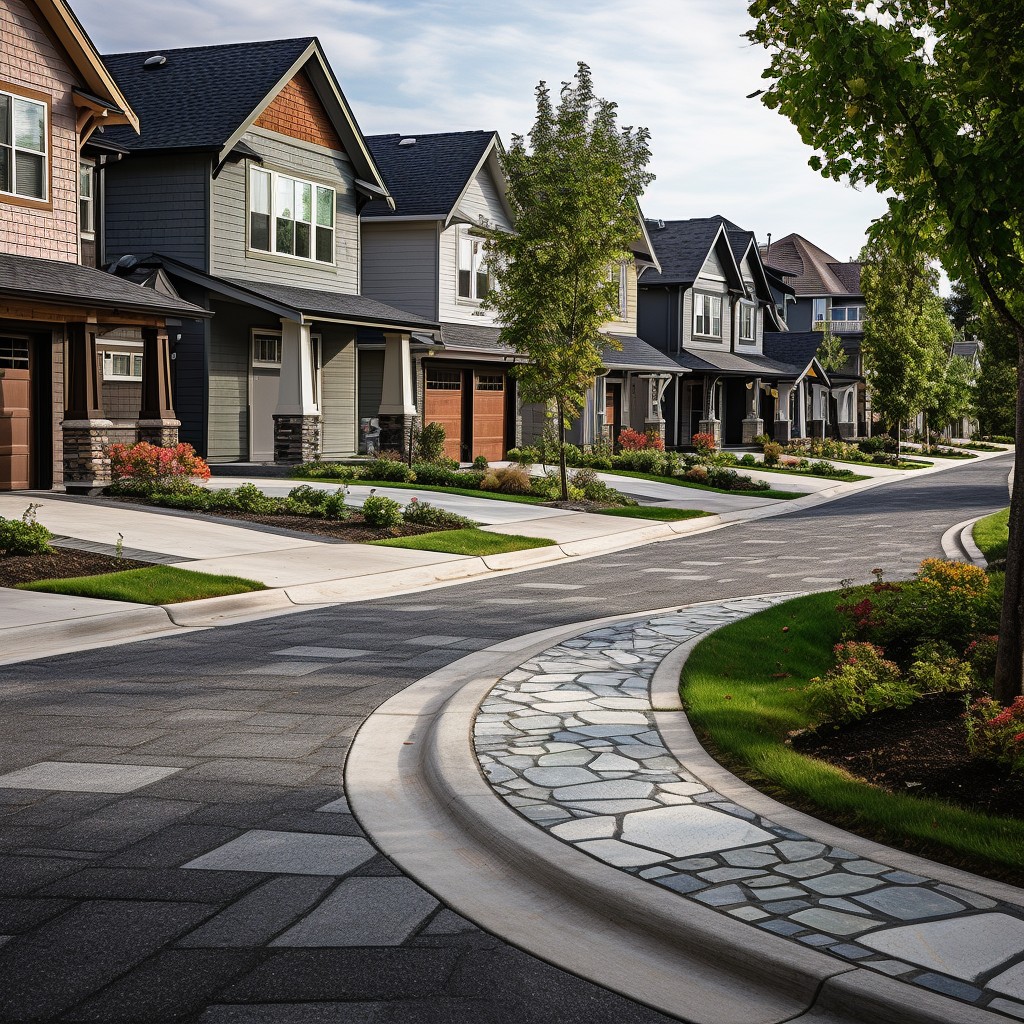
These porous surfaces allow water to seep through the pavement and into the ground below, reducing runoff and preventing flooding. Pervious pavements come in a variety of materials such as concrete, asphalt or pavers.
One of the benefits of using pervious pavement is that it can help reduce heat island effect by allowing rainwater to evaporate from its surface which cools down surrounding areas. These types of pavements require less maintenance than traditional ones since they don’t need regular cleaning or sealing.
However, there are some downsides to consider when choosing this type of paving material. For instance, because it’s permeable it may not be suitable for high traffic areas like driveways where heavy vehicles could cause damage over time if not installed properly with proper sub-base preparation.
Brick Streets

They have been used for centuries in Europe and America, adding charm and character to historic neighborhoods. Brick streets are made of clay bricks that are laid on top of a sand or gravel base, creating an interlocking pattern that is both durable and aesthetically pleasing.
One advantage of brick streets is their durability; they can last up to 100 years with proper maintenance. They also provide better traction than asphalt, making them safer for pedestrians and drivers alike.
Another benefit of brick streets is their ability to absorb water naturally through the gaps between the bricks, reducing runoff into storm drains. This makes them an eco-friendly option compared to impermeable surfaces like concrete or asphalt.
However, there are some downsides as well; brick roads require more upkeep than other materials due to weeds growing between the cracks which need regular removal by hand or herbicides application.
Cobblestone Paths

These paths are made of small, irregularly shaped stones that fit together tightly, creating a durable surface for walking or driving. Cobblestones come in various colors and sizes, making it easy to create unique patterns or designs.
One of the benefits of cobblestone paths is their longevity. They can last for decades with proper installation and maintenance.
They provide excellent drainage as water seeps through the gaps between stones instead of pooling on top like with traditional concrete surfaces.
While cobblestones may be more expensive than other alternatives initially due to their labor-intensive installation process, they require little upkeep over time compared to other materials such as concrete or asphalt which need regular repairs.
Recycled Plastic Roads
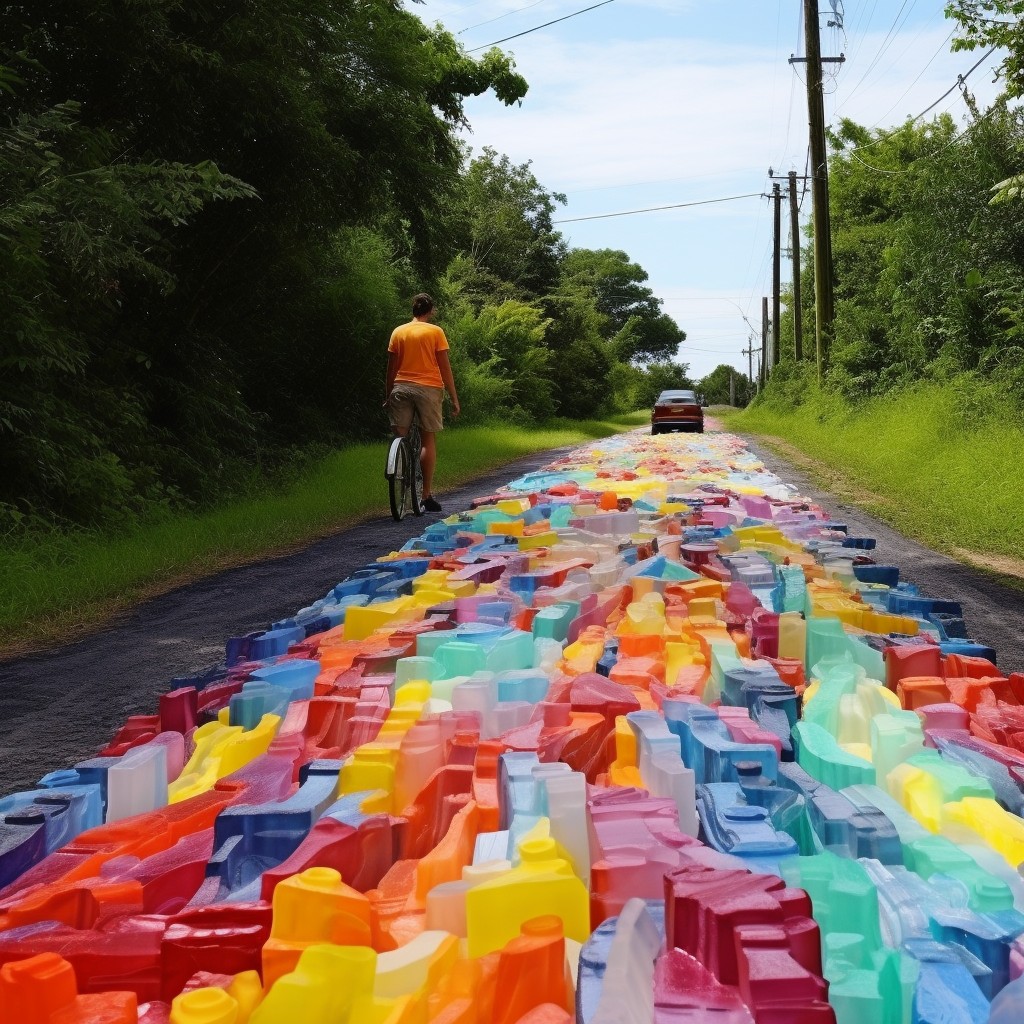
These roads are made from recycled plastic waste, which is melted down and mixed with other materials to create a durable and long-lasting road surface. Not only do they provide a sustainable solution for disposing of plastic waste, but they also have several benefits over traditional asphalt roads.
One major advantage of using recycled plastic in road construction is that it’s more resistant to wear and tear than traditional asphalt. This means that the lifespan of these types of roads can be significantly longer than those made from conventional materials.
Because the material used in making these types of pavements comes from post-consumer plastics such as water bottles or grocery bags, it reduces landfill space requirements while providing an environmentally friendly option for paving projects.
Moreover, this type of pavement has been shown to reduce noise pollution levels by up to 70%, making them ideal for residential areas where traffic noise can be disruptive.
Rubberized Asphalt
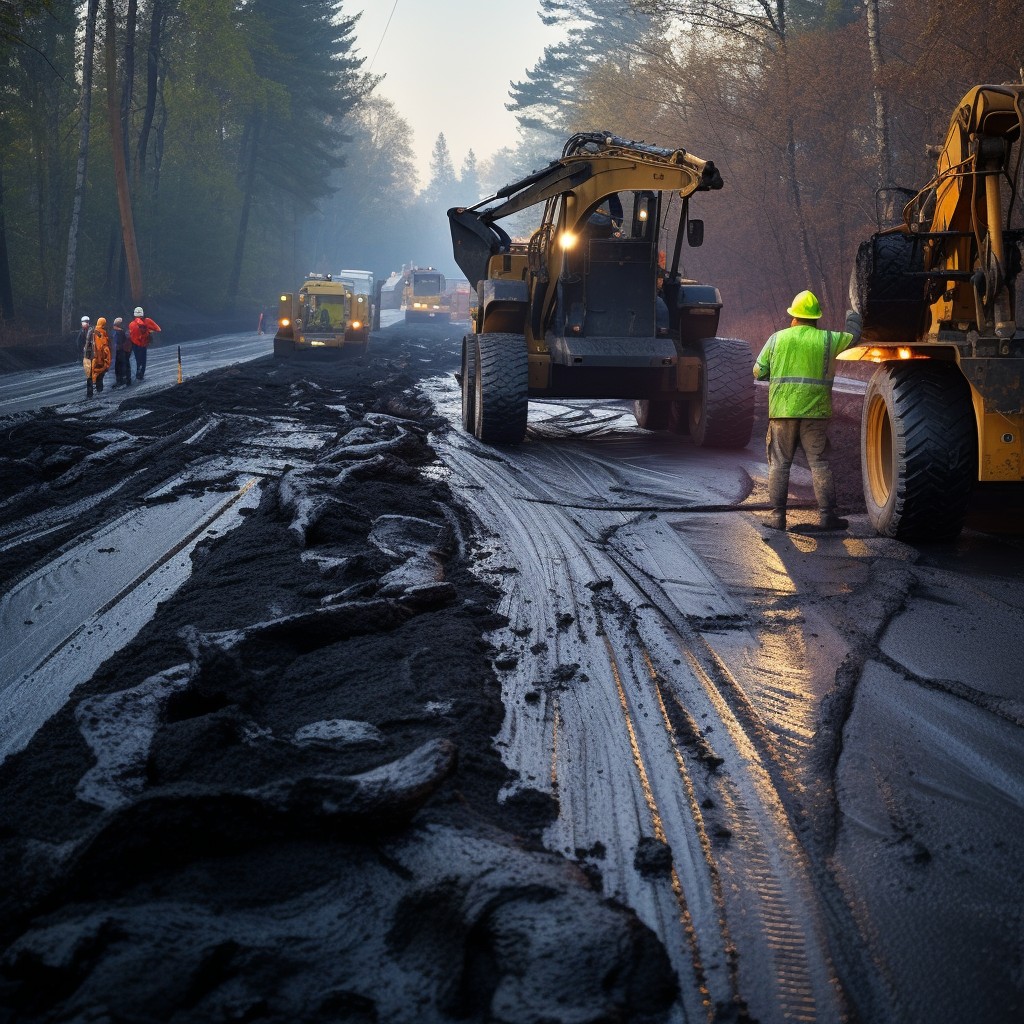
It’s made by mixing recycled rubber with asphalt, creating a more durable and flexible material that can withstand harsh weather conditions. This type of pavement is not only eco-friendly but also reduces noise pollution as it absorbs sound better than traditional asphalt.
One of the main benefits of using Rubberized Asphalt is its longevity. Due to its flexibility, it can resist cracking and damage caused by temperature changes or heavy traffic flow, making it an ideal choice for high-traffic areas such as highways or busy streets.
Another advantage of Rubberized Asphalt is its ability to reduce carbon emissions during production since recycled tires are used instead of new materials like gravel or sand. By choosing this option over conventional paving methods, you’re helping the environment while still achieving a beautiful finished product.
Solar Panel Roads
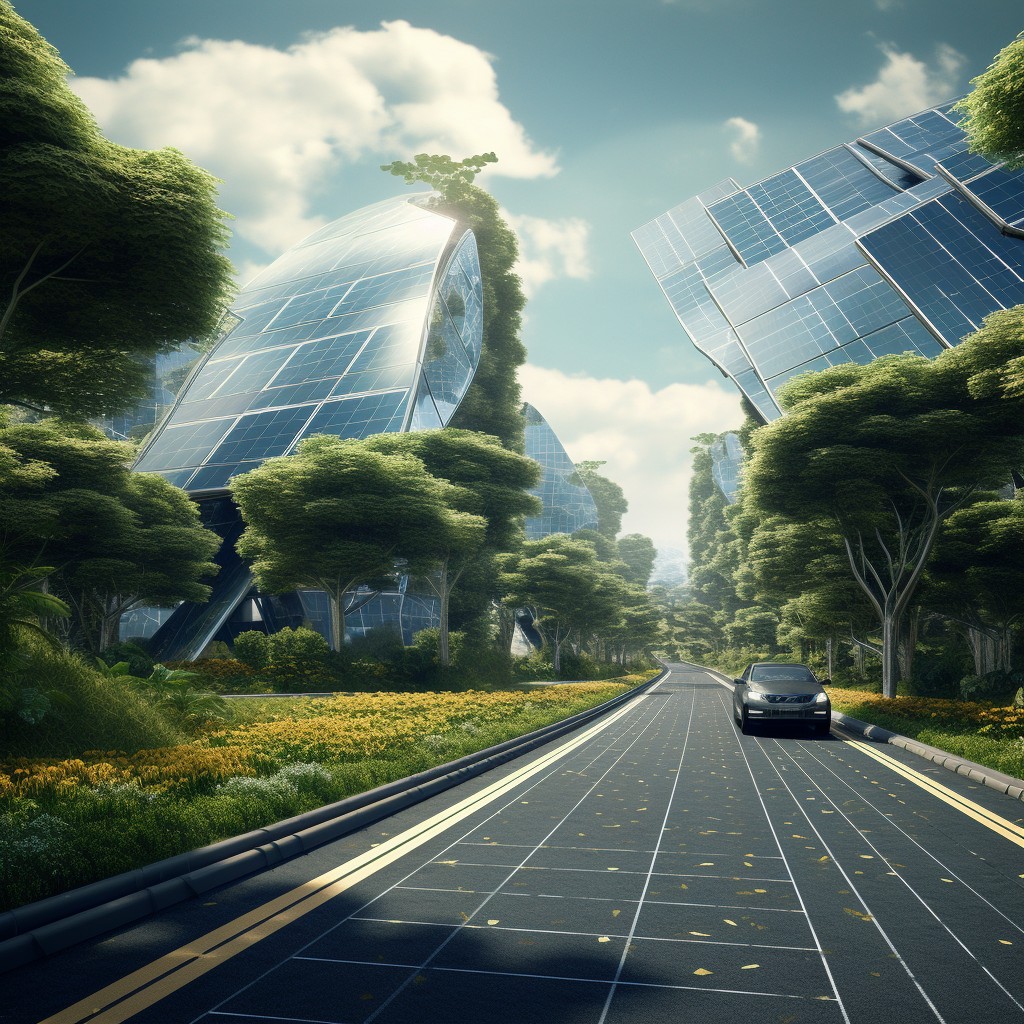
These roads are made up of photovoltaic panels that can generate electricity from sunlight and convert it into usable energy. The idea behind this technology is to create a sustainable infrastructure that not only provides transportation but also generates clean energy for homes and businesses.
The benefits of solar panel roads are numerous, including reduced carbon emissions, lower maintenance costs, and increased safety due to better visibility at night. These roadways have the potential to power electric vehicles as they drive on them.
While still in its early stages of development, several countries have already started experimenting with this technology. France has built a one-kilometer stretch of solar roadway while China has constructed a 2-kilometer long bike path paved with solar panels.
Porous Asphalt
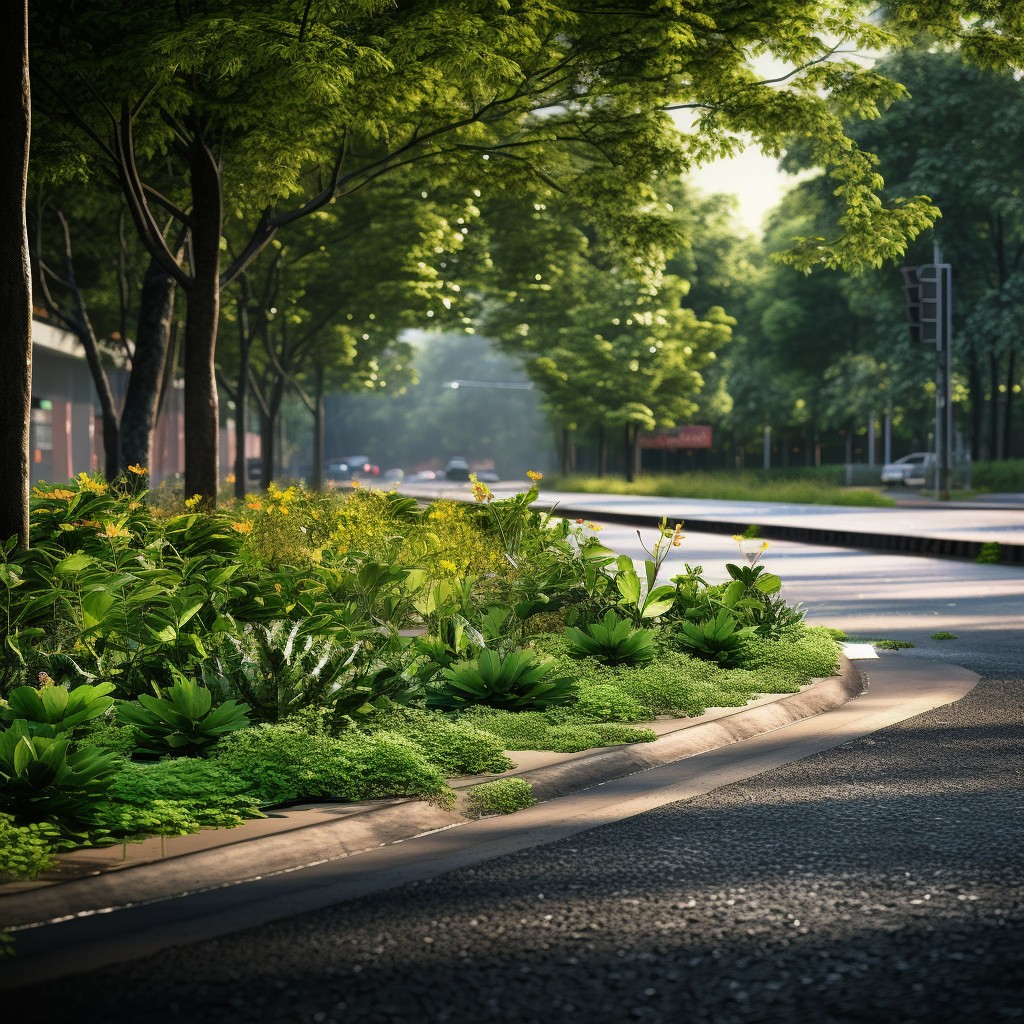
This type of pavement is made by mixing small stones, sand, and asphalt cement together. The result is a porous surface that looks like traditional blacktop but has tiny holes throughout.
One of the benefits of porous asphalt is its ability to reduce stormwater runoff. When rain falls on traditional paved surfaces, it runs off into nearby streams or rivers carrying pollutants with it.
Porous pavements allow water to filter through them before reaching groundwater sources.
Another advantage of using this material for your driveway or walkway paving project is that they can last longer than conventional ones due to their unique design which reduces wear and tear caused by heavy traffic flow.
However, there are some downsides as well; one being that these pavements require more maintenance than regular ones since debris can clog up pores over time leading them not functioning properly anymore if left unattended for too long periods without cleaning out any accumulated dirt from within those tiny holes in between stones/sand mixture used during construction process.
Gravel Roads
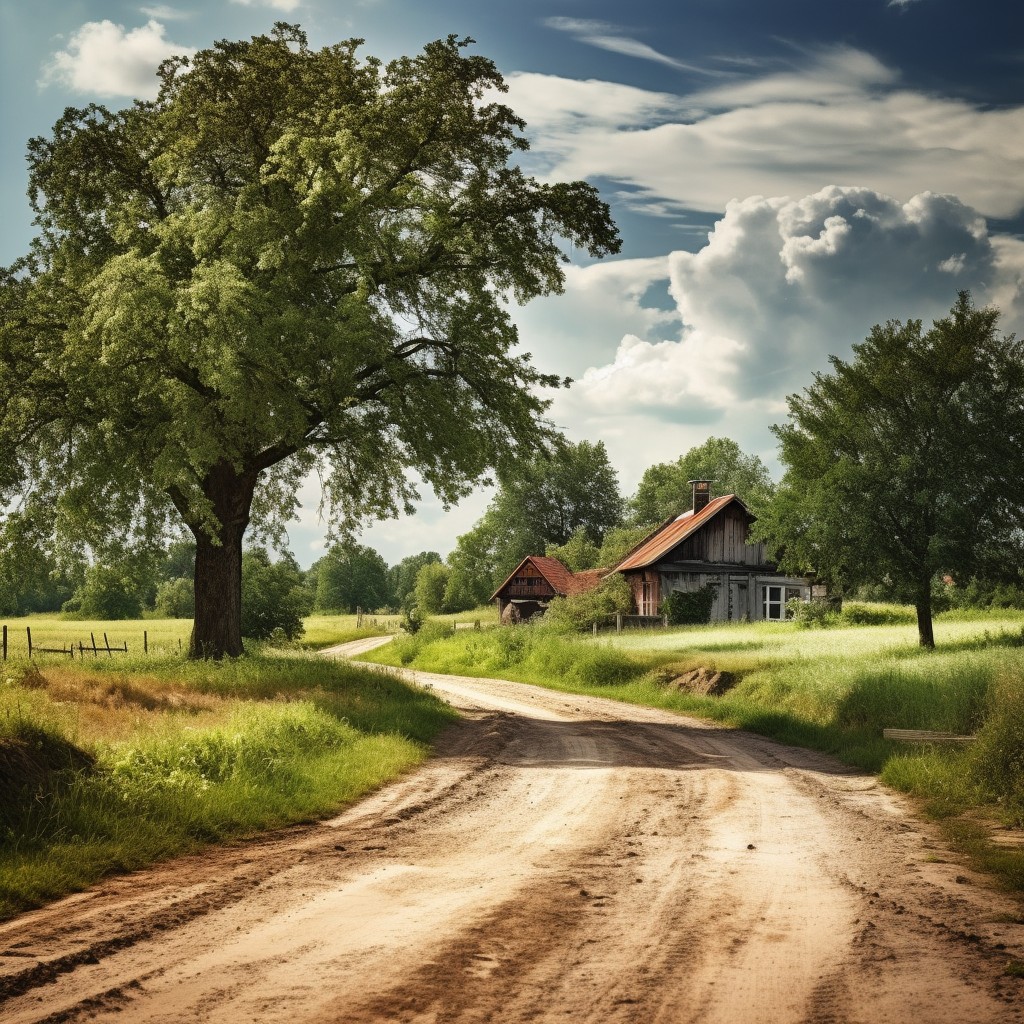
They’re affordable, easy to maintain and can last for years with proper care. Gravel is also an eco-friendly option as it’s made from natural materials that don’t harm the environment.
One of the biggest advantages of gravel roads is their low cost compared to other paving options. They require minimal equipment and labor during installation, making them ideal for homeowners on a budget.
However, there are some downsides to consider before choosing gravel as your road surface material. Gravel can be noisy when vehicles drive over it and may kick up dust or debris which could be problematic if you have allergies or respiratory issues.
Heavy rainfalls can wash away sections of the road causing potholes or ruts that need repair frequently.
Macro Synthetic Fiber Reinforced Roads
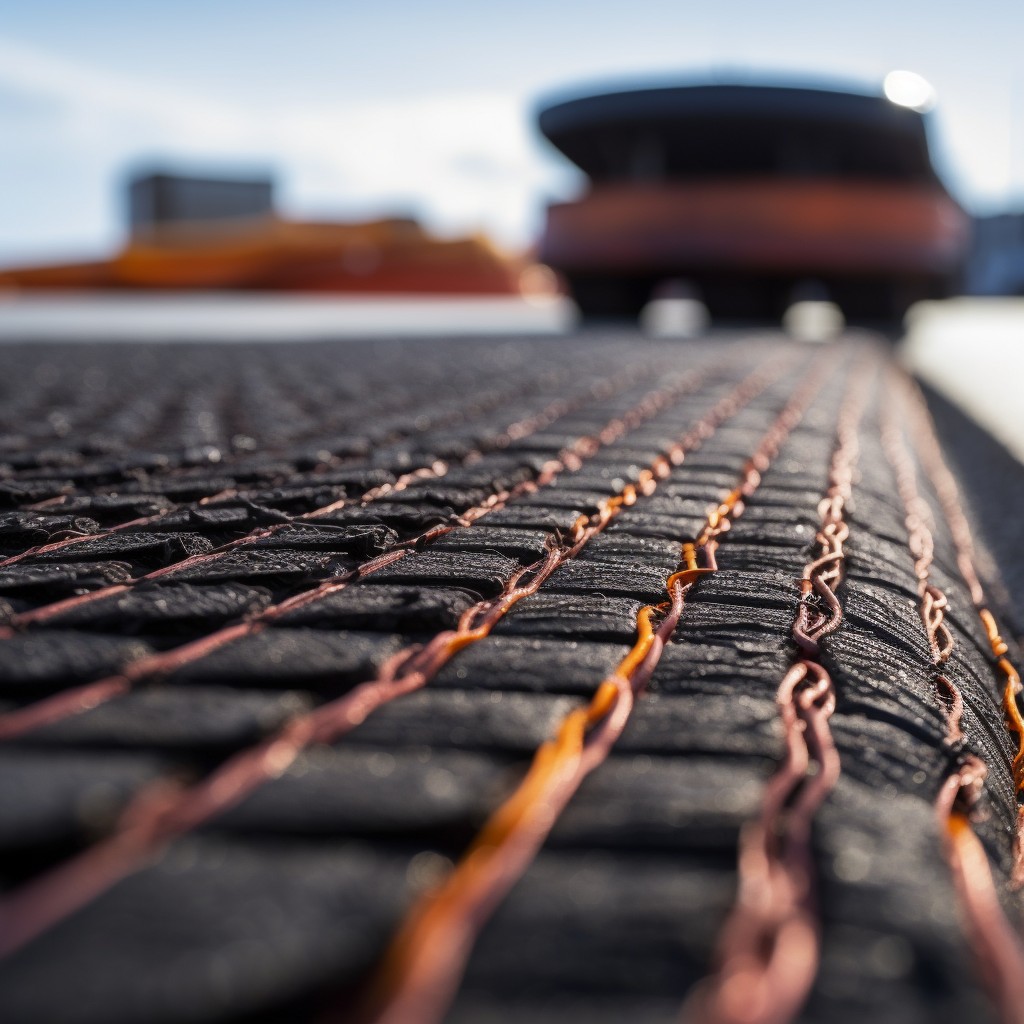
These roads are made by mixing synthetic fibers with concrete or other materials to create a strong and flexible surface that can withstand heavy traffic loads.
The use of macro synthetic fibers in road construction has been gaining popularity due to its many benefits. The fibers improve the strength, durability, and flexibility of the pavement while reducing cracking caused by temperature changes or heavy loads.
Moreover, these types of roads require less maintenance than traditional asphalt surfaces since they don’t need frequent resurfacing or patching up. They also have excellent resistance against water damage which makes them ideal for areas prone to flooding.
Macro Synthetic Fiber Reinforced Roads are eco-friendly as they reduce carbon emissions during production compared with traditional methods like hot mix asphalt (HMA).
Green Roads With Grass Crete
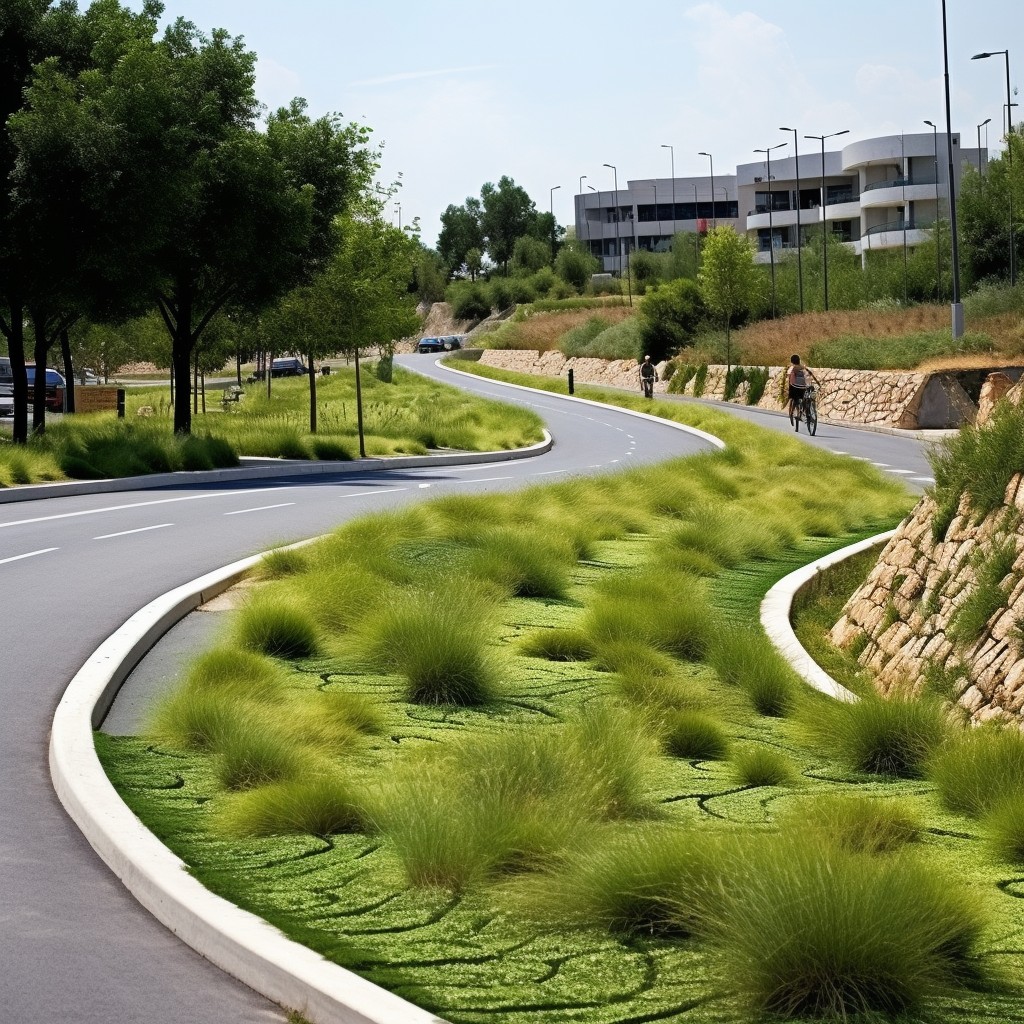
Grass crete is a type of permeable pavement that allows water to flow through it, reducing runoff and preventing flooding. It’s made up of concrete blocks with holes in them, which are then filled with soil and planted with grass or other vegetation.
Not only do green roads look beautiful, but they also have many benefits for the environment. The plants help absorb carbon dioxide from the air while releasing oxygen back into it.
They also provide habitat for insects and small animals.
In addition to being environmentally friendly, green roads can be cost-effective as well. They require less maintenance than traditional pavements since there’s no need for regular resurfacing or sealing.
Road Plates

These steel plates provide a stable surface for vehicles and pedestrians, making them ideal for use in areas where traditional paving materials may not be practical or cost-effective. Road plates can also be used as an emergency solution when roads are damaged due to natural disasters such as floods or earthquakes.
One of the benefits of using road plates is their durability. Made from high-quality steel, these plates can withstand heavy traffic loads without cracking or breaking down over time.
They’re also easy to install and remove, which makes them an excellent choice for temporary applications.
Another advantage of using road plates is that they’re reusable. Once they’ve served their purpose at one location, they can easily be transported to another site where they’re needed again.
Rolled Compacted Concrete
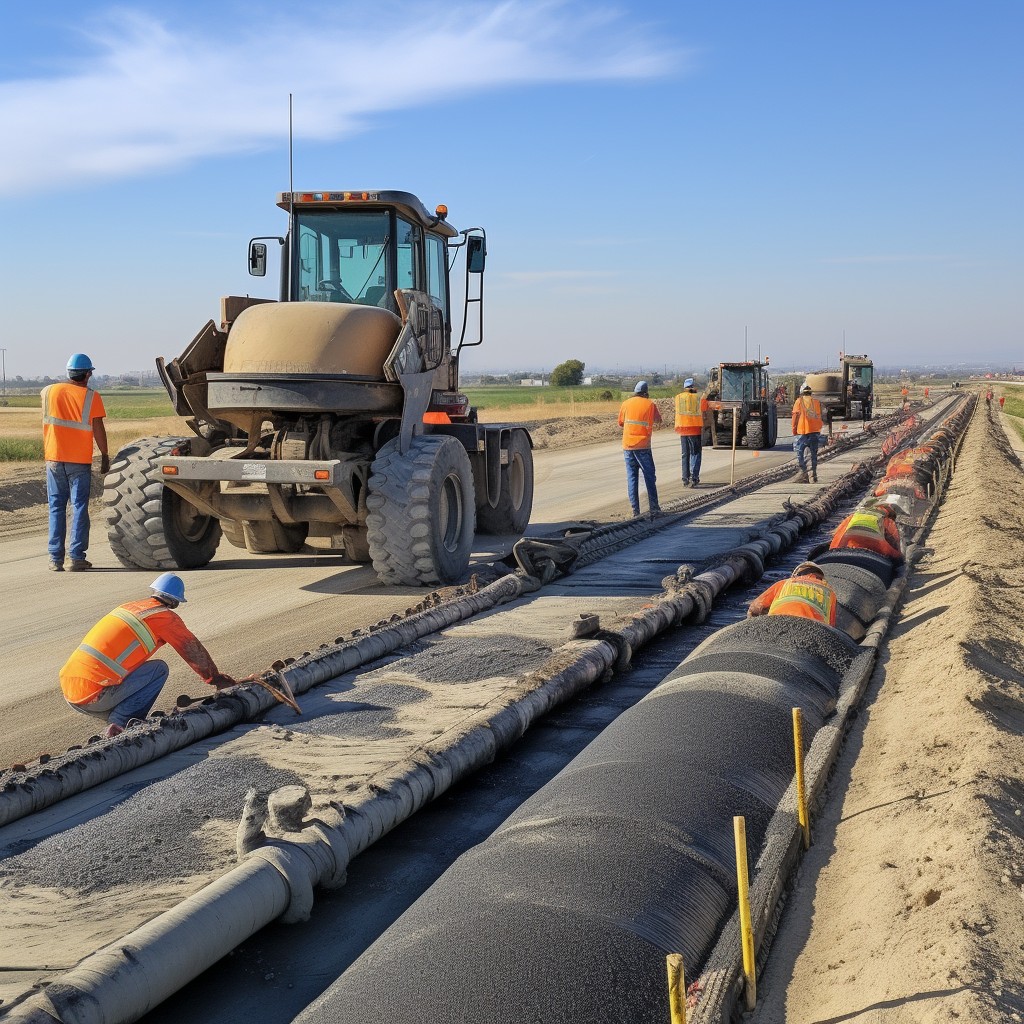
RCC is made from the same materials as regular concrete, but it’s mixed and placed differently. Instead of being poured into forms like regular concrete, RCC is spread out in thin layers and compacted with heavy rollers.
One advantage of using RCC for roadways or driveways is its durability. It can withstand heavy traffic loads without cracking or deteriorating quickly like asphalt does over time.
Because it doesn’t require curing time like traditional concrete, construction times are shorter.
Another benefit of using RCC for paving projects is its cost-effectiveness compared to other alternatives such as interlocking pavers or brick streets which can be more expensive due to their intricate designs and installation process.
Cellular Confinement Systems

These systems use interconnected cells made of high-density polyethylene to create a stable and durable surface for roads, parking lots, and other paved areas. The cells are filled with soil or aggregate material, which provides support for heavy loads while allowing water to drain through easily.
One of the main advantages of cellular confinement systems is their ability to reduce erosion caused by stormwater runoff. By allowing water to flow freely through the pavement surface instead of pooling on top, these systems can help prevent damage from flooding and improve overall drainage in urban areas.
Another benefit is their ease of installation compared to traditional paving methods like concrete or asphalt. Cellular confinement system components can be quickly assembled on-site without requiring specialized equipment or extensive preparation work.
Stabilized Earth Roads

These roads are made from a mixture of soil, gravel, and stabilizing agents like cement or lime. The result is a durable surface that can withstand heavy traffic while also being environmentally friendly.
One of the biggest advantages of stabilized earth roads is their low cost compared to traditional asphalt paving. They require less maintenance than other types of road surfaces and have a longer lifespan as well.
Another benefit is that they are more sustainable than traditional pavement options because they use natural materials instead of petroleum-based products like asphalt. This makes them an excellent choice for those who want to reduce their carbon footprint without sacrificing quality or durability.
Bamboo Reinforced Pavements
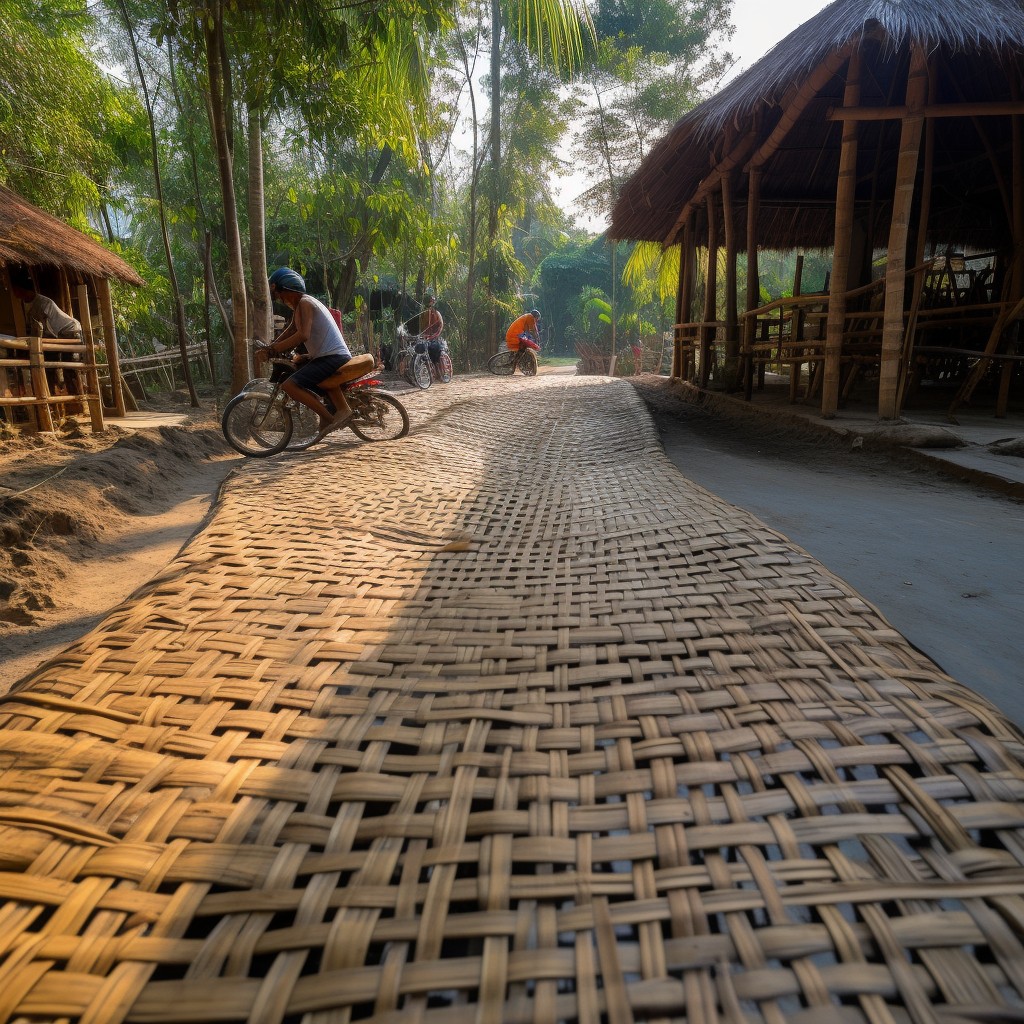
Bamboo is an incredibly strong and durable material that can withstand heavy traffic loads. It’s also renewable, fast-growing, and abundant in many parts of the world.
Bamboo reinforced pavements are made by embedding bamboo strips into concrete or other materials used for paving roads or walkways. The result is a pavement that has increased strength and durability while reducing environmental impact.
One of the main advantages of using bamboo as reinforcement in pavement construction is its high tensile strength-to-weight ratio compared to steel reinforcement bars (rebars). This means it can provide similar structural support with less weight than traditional rebars.
Moreover, unlike steel rebars which corrode over time due to exposure to moisture or chemicals present on road surfaces such as salt during winter months; Bamboo does not rust nor corrode making it ideal for use in areas where there are harsh weather conditions like snowfall regions.
In addition to being environmentally friendly, bamboo-reinforced pavements have been shown through research studies conducted by various organizations worldwide including UNESCO-International Centre For Engineering Education (UICEE) – Australia; National Institute Of Technology Rourkela – India among others- to have better resistance against cracking under heavy loads when compared with conventional concrete structures without any reinforcements at all!.
Geotextile Roadway Solutions
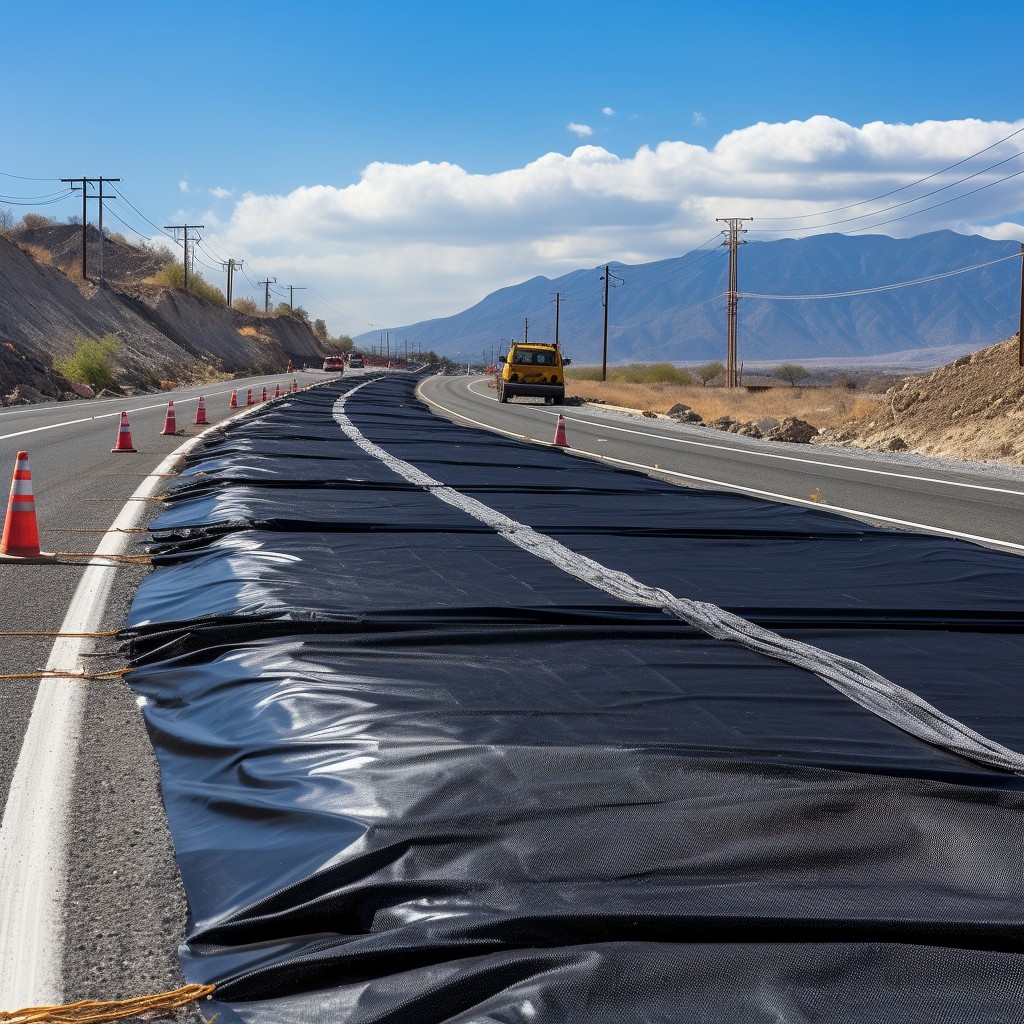
These are made from a permeable fabric that allows water to pass through while still providing stability for vehicles and pedestrians. Geotextiles can be used in conjunction with other materials like gravel or sand, making them an excellent choice for driveways, parking lots, and walkways.
One of the benefits of using geotextiles is their ability to reduce erosion by stabilizing soil particles. They also help prevent potholes from forming by distributing weight evenly across the surface area.
In addition to being environmentally friendly, geotextile roadway solutions are also cost-effective as they require less maintenance than traditional asphalt surfaces. They’re easy to install and can last up to 25 years with proper care.
Crushed Glass Roads

The process involves crushing recycled glass into small pieces and mixing it with a binding agent to create a durable surface for roads.
Not only is this method environmentally friendly, but it also provides excellent traction in wet conditions. Crushed glass can be used as an aggregate in concrete or asphalt mixtures, reducing the need for virgin materials and saving energy during production.
In addition to being sustainable, crushed-glass roads offer unique aesthetic appeal with their sparkling appearance that reflects sunlight beautifully. They’re also highly resistant to weathering and wear-and-tear from heavy traffic.
Interlocking Pavers
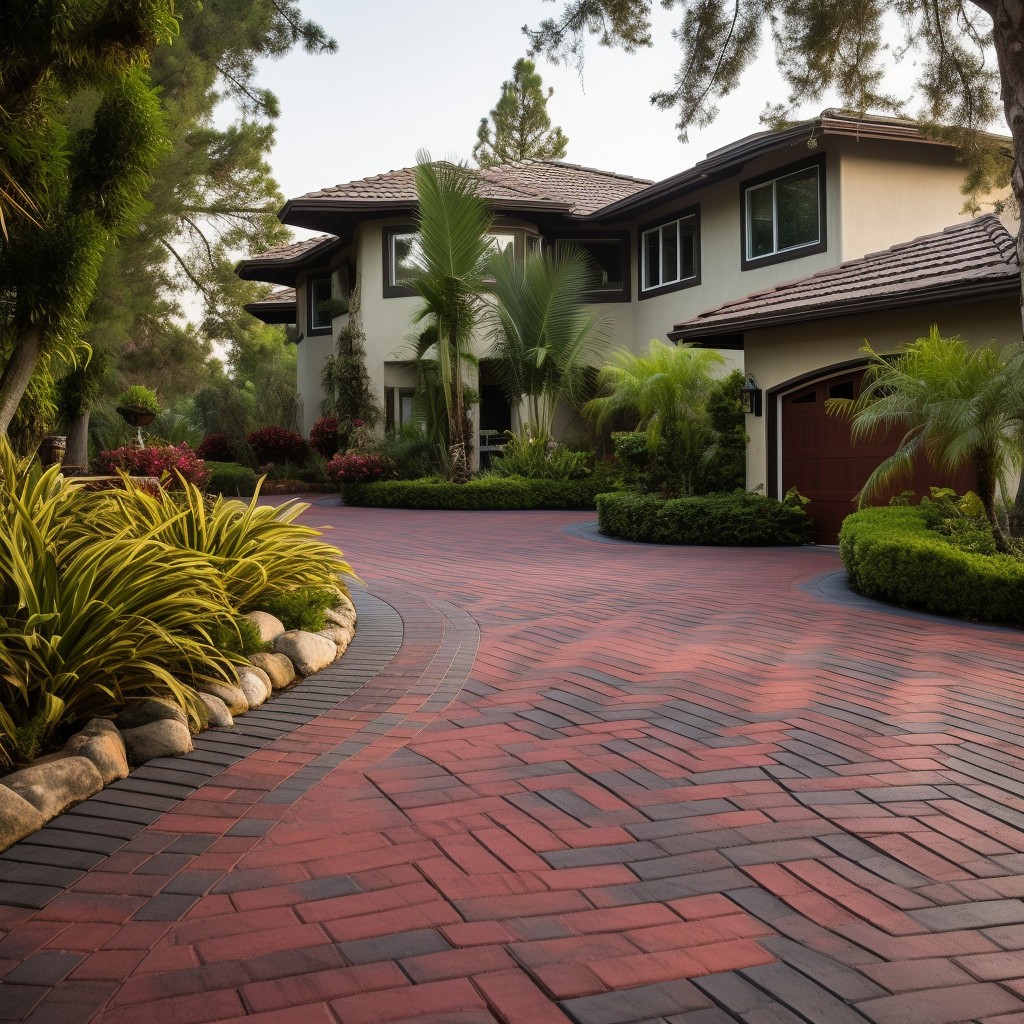
These pavers come in various shapes, sizes, and colors that can be arranged in different patterns to create unique designs. Interlocking pavers are made from concrete or clay materials that make them strong enough to withstand heavy traffic while maintaining their appearance.
One of the benefits of interlocking pavers is their ease of installation. They do not require any special equipment or skills, making them a great DIY project for homeowners who want to save money on labor costs.
If one section becomes damaged over time due to wear and tear or weather conditions such as freezing temperatures causing cracks in the pavement surface; it’s easy enough just replace those individual pieces without having redoing everything else around it.
Another advantage is that they allow water drainage through the gaps between each piece which helps prevent flooding during heavy rainfalls by allowing water runoff into soil below rather than pooling up on top like with traditional asphalt surfaces where there may be no place left for excess moisture after rainfall events occur frequently throughout year-round climates.
Selecting the Best Driveway Paving Alternative
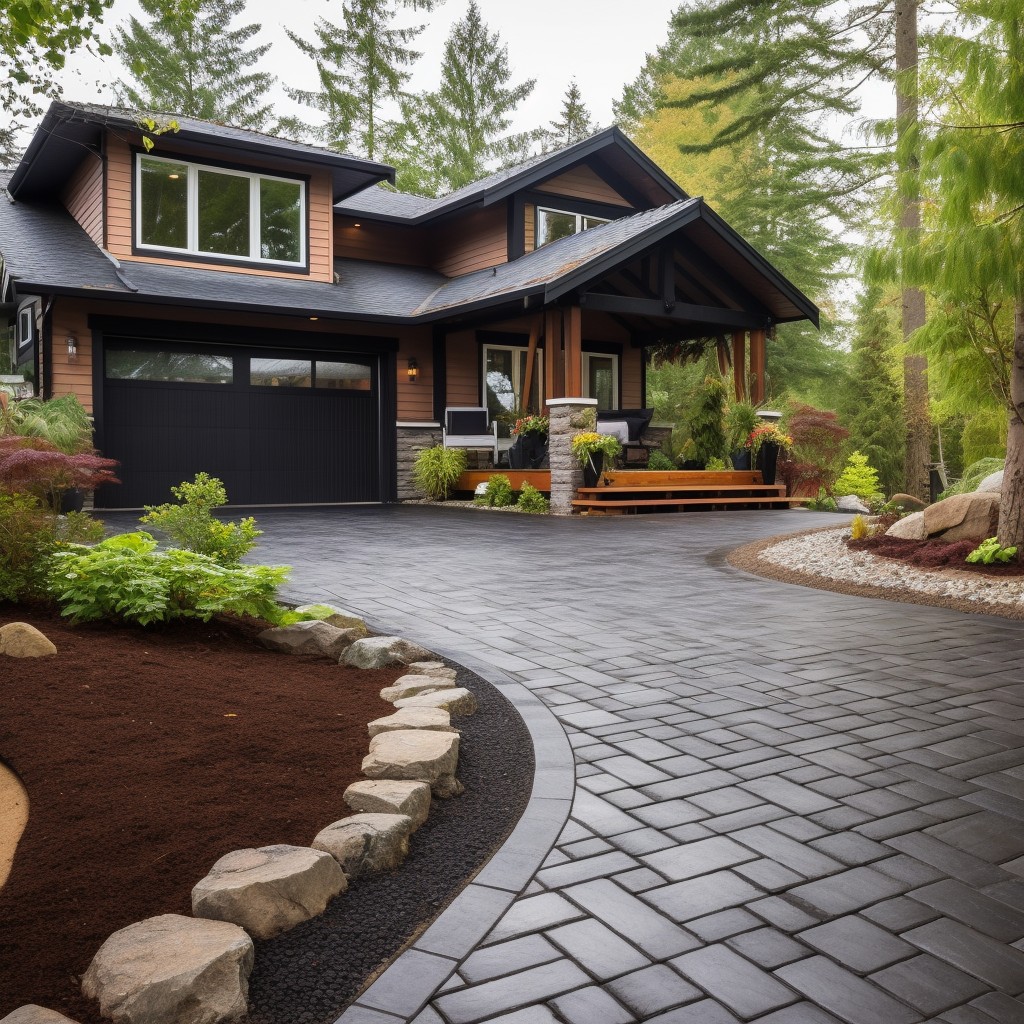
First and foremost, you need to think about your budget. Some materials may be more expensive than others, so it’s important to choose an option that fits within your price range.
Another factor is durability. You want a material that can withstand heavy traffic and harsh weather conditions without deteriorating quickly or requiring frequent repairs.
Consider the aesthetic appeal of each option. Do you want something modern or traditional? Are you looking for a specific color or texture?
Think about maintenance requirements for each material. Some options may require regular cleaning or sealing while others are virtually maintenance-free.
By taking all these factors into account when selecting the best driveway paving alternative for your home, you can ensure that not only will it look great but also last long-term without breaking the bank on upkeep costs!.
FAQ
What can be used instead of asphalt?
Gravel can be used as a cheaper alternative to asphalt, providing a cost-effective option for driveways.
What is the least expensive hard surface for a driveway?
The least expensive hard surface for a driveway is gravel, with a price range of $1 to $3 per square foot.
What are the cheapest driveway surface options?
The cheapest driveway surface options include asphalt driveways as they are the least expensive and require minimal maintenance.
What material is better than asphalt?
Concrete is a better material than asphalt due to its increased safety, aesthetic options, longer-lasting road surfaces, and lower maintenance requirements.
What are the environmental benefits of using alternative materials to asphalt for driveways?
Alternative materials for driveways, such as permeable paving and recycled materials, provide environmental benefits by reducing stormwater runoff, decreasing heat island effect, and promoting resource conservation.
How do the maintenance requirements of alternative driveway materials compare to asphalt?
Alternative driveway materials generally require less maintenance than asphalt, with some offering enhanced durability and eco-friendliness.
Are there any innovative driveway materials currently being developed to replace traditional asphalt?
Yes, innovative driveway materials, such as permeable pavers and resin-bound gravel, are currently being developed as alternatives to traditional asphalt driveways.
Recap
Liked this article? Here's what you can read next:
